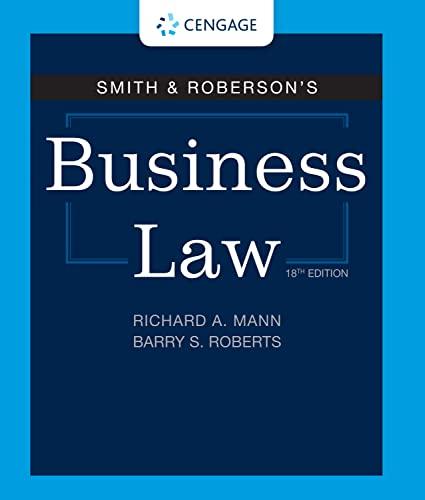Question
1. Consent. How do the Supreme Court rulings in Georgia v. Randolph (2006) and Fernandez v. California (2014) impact the concept of consent in search
1. Consent. How do the Supreme Court rulings in Georgia v. Randolph (2006) and Fernandez v. California (2014) impact the concept of consent in search and seizure cases, particularly in situations involving multiple occupants of a residence? How do these cases define the boundaries of consent when one occupant consents while another does not, and what implications do these decisions have on Fourth Amendment protections against unreasonable searches and seizures?
In Georgia v. Randolph (2006) see page 887 also in textbook.Georgia v Randolph case information that will assist you: videohttps://youtu.be/tzBonKj80KQLinks to an external site.
Step by Step Solution
There are 3 Steps involved in it
Step: 1

Get Instant Access to Expert-Tailored Solutions
See step-by-step solutions with expert insights and AI powered tools for academic success
Step: 2

Step: 3

Ace Your Homework with AI
Get the answers you need in no time with our AI-driven, step-by-step assistance
Get Started


